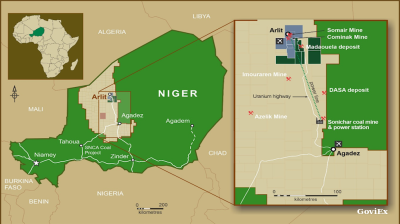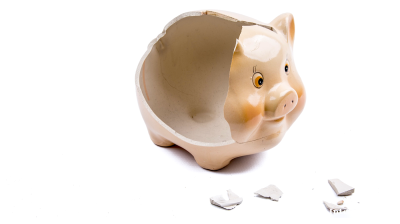COMMENT: Slovakia’ Prime Minister pushes back on EU gas phase-out, demands a delay to the sanctions as EU cracks widen

Slovak Prime Minister Robert Fico is becoming a major embarrassment for the EU plans to phase out all Russian gas imports by 2028.
In a letter shared on social media and reported by European Pravda on July 16, Fico argued that the proposed gas phase-out would damage Slovakia’s economy and warned it could undermine broader EU competitiveness.
“Slovak Republic will never support REPowerEU in gas supplies, as it will harm Slovak households and the economy and further reduce competitiveness of the entire European Union,” Fico wrote, referring to the European Commission (EC) plans to revamp its energy supplies, cutting all dependency on Russia completely.
For weeks he has refused to sign off on the eighteenth sanctions package, using Slovakia’s veto to gain leverage and pressure the EU into granting Slovakia an exemption from the planned Russian gas import ban. Bratislava renewed its gas import contract with Russian gas giant Gazprom in the first month of the outbreak of war in Ukraine and wants to see it through to its expiration in 2034.
The EC has offered some compromises, according to Fico, but is flatly refusing to allow Slovakia’s demand for a calve-out. That would force Bratislava to import more expensive gas from alternative routes such as the TurkStream gas pipeline or tap international LNG imports arriving in the Mediterranean.
Fico accused the EC of “grossly ignoring the political mandate approved by the European Council” by pressing ahead with REPowerEU’s timeline, and described his government’s opposition as “consistent and should come as no surprise to anyone”.
While acknowledging that Slovakia does not have a formal veto over the REPowerEU programme, Fico linked the initiative directly to the broader sanctions effort and requested a postponement of the sanctions vote until Bratislava’s concerns are addressed. “We view the proposal as a sanction,” he said.
The EU’s eighteenth sanctions package against Russia, a key item on the agenda of the EU Foreign Affairs Council on July 15, aims to further restrict trade and financial links with Moscow, targeting, amongst other things, Russia’s extensive shadow fleet of oil tankers. The bloc’s foreign policy chief Kaja Kallas said member states were “very close to agreement” and expressed hope that the measures would be adopted at the meeting, but the vote has failed day after day in the last week.
Fico has suggested that he is willing to cut a deal but continues to hold out for permission to keep his Gazprom contract functioning. He cited strong opposition from domestic industry, stating there was not even a “slight consensus” in Slovakia for the Commission’s position and warning that business representatives held “extremely negative” views of the plan.
He called on von der Leyen to continue dialogue with the Slovak government “in the coming hours and days”, particularly to clarify the Commission’s commitments regarding energy security.
“Until then, we will request a postponement of the vote on the eighteenth sanctions package,” Fico said.
Malta, which operates an oil tanker fleet that is actively working with Russia as part of the shadow fleet, has also expressed concerns about the sanction’s proposal, particularly regarding a potential reduction in the price cap on Russian oil, according to European Pravda.
EU unity cracking
The push to ban Russian gas imports completely is being driven by Kallas, but is undermining the unity in the EU for sanctions on Russia. As bne IntelliNews has argued, imports only need to be cut to around 15% of Europe’s gas imports to remove the leverage the Kremlin used to have when its imports accounted for 35-40% of imports. Then the threat of cutting off supplies was a problem, but at 15% Europe is able to replace the Russian gas with imports of the much more expensive LNG from suppliers like the US or Qatar.
The countries in Central Europe remain dependent on imports of oil and gas using the legacy Soviet-era pipeline infrastructure and have limited alternatives. Moreover, both Hungary and Slovakia have been making extra money by re-exporting their imports of Russian oil and gas to their EU neighbours to the west.
The row with Fico comes at a time when Von der Leyen is under increased pressure. She survived a vote of no-confidence on July 10, but the mounting economic pressure on the EU is exacerbating the growing pressure on the unity in Europe that threatens break up the EU as it grapples with a raft of problems, such as the need to ReArm, low growth and a lack of competitiveness.
And those problems are only going to get worse as the EC launches an effort to draw up its next long-term budget. In parallel to Fico’s insistence on keeping his Russian gas imports, his partner in supporting Russia, Hungarian Prime Minister Viktor Orban, has launched a similar campaign, vetoing attempts to bring Ukraine into the EU. Orban argues that the EU can’t afford to subsidise Ukraine’s economy and it will inflame growing military tensions with an increasingly belligerent Russia. He has already said that Hungary won't contribute to the €100bn planned for Ukraine.
This week simmering internal criticism of Von der Leyen flared up again after the EC president tried to fluff the introduction of proposals for the next €1.8 trillion Multiannual Financial Framework (MFF) budget for the seven-year period from 2028 – double the size of the previous budget.
Increasingly strapped for cash, the budget proposals are already causing tensions as Von der Leyen proposes to hike defence spending, cut agricultural subsidies and continue to channel billions to euros to support Ukraine, all funded by greater demands on the EU member states. The bloc has become more polarized than ever and von der Leyen’s political support is increasingly fragile, Politico reports.
The new MFF will also theoretically cover the period where Ukraine could join the EU that will also cause friction as the EU budget will have to be completely overhauled to accommodate it. As bne IntelliNews reported, if Ukraine is admitted under the current rules it would be entitled to €186bn in agricultural subsidies every year – more EU money than it has received in over three wars of war. The upshot of a revision to the budget would almost certainly see the four Visegrad countries go from net beneficiaries of the EU budget – a third of which goes to farmers – to net contributors; the core of Orban’s argument against Ukraine’s membership. Collectively, the Visegrad countries receive between €21bn and €26bn a year from the EU budget under the current long-term budget and related instruments. Ukraine can’t join the EU until the Common Agricultural Policy is reformed, which is exactly what von der Leyen is currently proposing.
The EU plans to approve a record budget, with Ukraine set to receive €100bn. The European Commission intends to approve a historic EU budget for 2028-2034 totalling €1.717 trillion.
According to EC President Ursula von der Leyen, €100bn of this amount will be allocated to support Ukraine. This will be the largest budget in the EU's history. The final figure may still change before approval, but if approved, the EU budget will rise to 1.23% of the gross national income of member states, up from 1.1% in the current period (2021-2027).
The main priorities of the new budget will be defence, innovation, and security, while spending on traditional areas such as agriculture and regional development will decrease.
It is expected that:
● €946bn will go toward the European social model
● €522bn for competitiveness, prosperity, and security
● €190bn for external policy and assistance to neighboring countries
● €107bn for EU administrative expenses
Support for Ukraine is planned within a separate extra-budgetary fund. The commission also intends to introduce three new taxes to gradually repay the shared debt accumulated during the COVID-19 pandemic.
News

US suspends strategic dialogue with Kosovo amid political deadlock
Washington singles out Kosovo's caretaker PM, leftwing nationalist Albin Kurti, who has a strained relationship with the Trump administration.

Lukewarm support for Polish UN vote condemning Russian drone incursion
Only 46 out of 193 UN member states signed a joint UN declaration on September 12, denouncing Russia’s alleged involvement in a drone incursion into Polish airspace two days earlier.

GoviEx, Niger extend arbitration pause on Madaouela uranium project valued at $376mn
Madaouela is among the world’s largest uranium resources, with measured and indicated resources of 100mn pounds of U₃O₈ and a post-tax net present value of $376mn at a uranium price of $80 per pound.

Brazil’s Supreme Court jails Bolsonaro for 27 years over coup plot
Brazil’s Supreme Court has sentenced former president Jair Bolsonaro to 27 years and three months in prison after convicting him of attempting to overturn the result of the country’s 2022 election.


